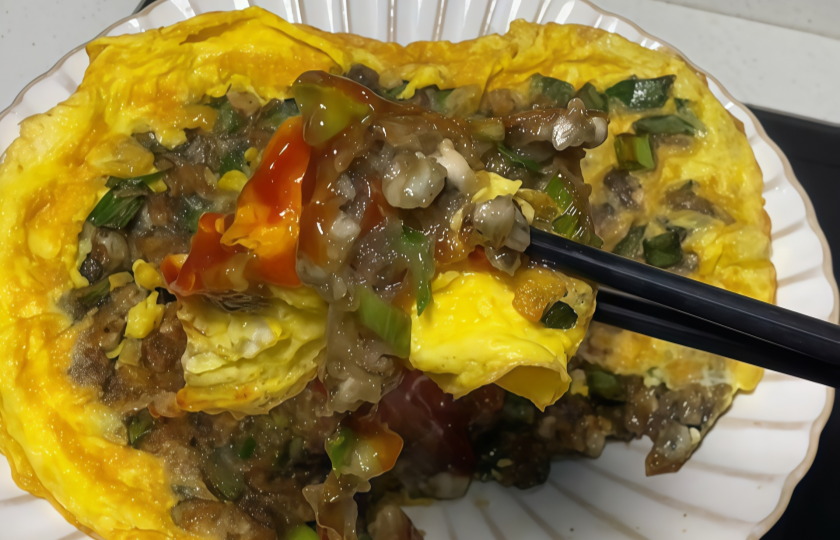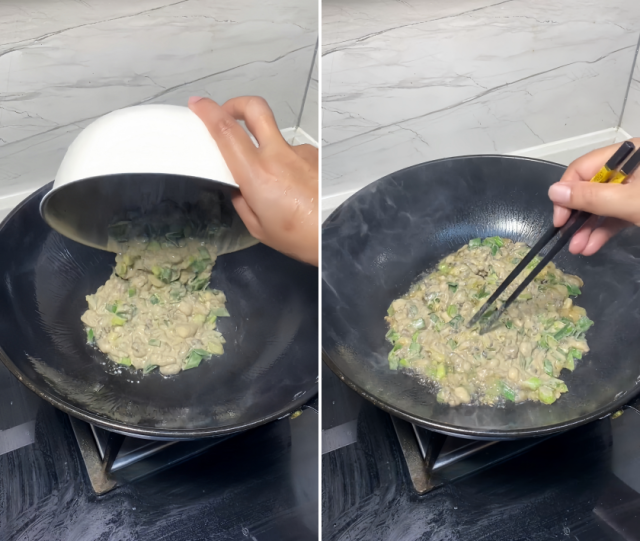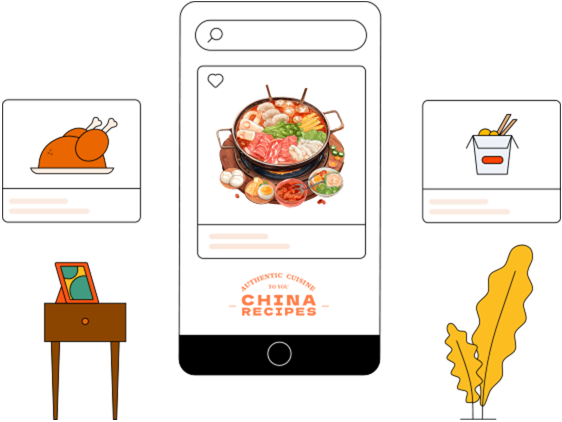Authentic Oyster Omelette

The history of oyster omelette can be traced back to the Minnan region, with a fascinating evolution worth exploring, Let's uncover its delicious secrets.
What is Oyster Omelette?
Oyster omelette is a classic snack in the Minnan and Chaoshan regions. It is made by frying a mixture of fresh oysters and sweet potato starch into a pancake. It is crispy on the outside and tender on the inside. The sweetness of the oysters blends with the aroma of garlic sprouts, emitting the warm, homely flavor loved by coastal families.
The entire cooking process is simple, yet it brings out the freshness of seafood and the comfort of home cooking, making it perfect for friends who love seafood to give it a try!
Why is it popular?
Fresh without fishy smell
Oysters are inherently sweet. Combined with the stickiness of sweet potato starch and the aroma of eggs, the flavors are distinct. Eating it gives a fresh taste without any fishy smell.
Quick and homely
The cooking method is simple and the ingredients are easily accessible. It serves 2 - 3 people, making it perfect for a busy family dinner.
Full of woks' smoky flavor
During the frying process, the wok's aroma fills the air, as if you can hear the sound of the seaside. It is saturated with the simple life flavor of fishermen.

Regional Differences
Taiwanese-style Oyster Omelette
In the Taiwanese version, sweet potato starch or cornstarch is usually used to make a paste. The omelette cooked in this way has a soft, glutinous, and elastic texture, with a slightly crispy outer skin and a tender inner filling.
Before serving, a layer of sweet chili sauce is often drizzled on top. With a sweet and sour taste and a hint of spiciness, the flavor becomes more intense and rich.
Cantonese/Hong Kong-style Oyster Omelette
The Cantonese or Hong Kong version emphasizes a light and original taste. Usually, a thin egg skin is used to wrap the oysters, with simple seasoning.
Scallions and pepper are often used to enhance the freshness, allowing the natural sweetness of the oysters to be fully displayed. The texture is lighter.
Southeast Asian Flavor
In places like Malaysia and Singapore, similar seafood pancakes sometimes have curry powder or other spices added, making the seasoning more diverse and exotic.
It not only has the freshness of seafood but also brings out a strong flavor of spices, with a slightly different style from the traditional Chinese version.
How Should I Choose Oysters?
Freshness First: Oysters should be fresh, smelling of a faint sea water fragrance rather than having a pungent fishy smell.
Intact Shells: If they are live oysters, the shells should be tightly closed. If the shells are open, they should close when gently tapped to be considered fresh.
Plump Meat: When selecting, the oyster meat should be plump, moist, and of a natural color.
INGREDIENTS
Main Ingredients
-
·300g oysters
-
·1 egg
Additional Ingredients
-
·30g garlic sprouts (chopped)
-
·30g sweet potato starch
Seasonings
-
·2g salt (for washing oysters)
-
·10ml soy sauce
-
·1g chicken powder
-
·5ml cooking wine
-
·1g five-spice powder
COOKING STEP
Step 1
Add 2g of salt to 300g of oysters and wash them thoroughly by hand. Then drain the water.

Step 2
Put the washed oysters in a bowl and add 30g of chopped garlic sprouts, 30g of sweet potato starch, 10ml of soy sauce, 1g of chicken powder, 5ml of cooking wine and 1g of five-spice powder.

Step 3
Stir well with chopsticks.

Step 4
Heat a pan and pour in 15ml of oil. Pour in the well-mixed oyster batter and spread it thinly. Fry over medium-low heat for 3 minutes until the bottom is set.

Step 5
Gently turn it over and fry for another 3 minutes until cooked through.

Step 6
Pour in the beaten egg along the edge of the pan to let the egg liquid evenly coat the oysters.

Step 7
Continue to fry for 1 minute until the egg liquid solidifies and then remove from the pan.

More recipes worth trying
Cabbage and Egg Recipe: Simple and Delicious Veggie Pancakes
Hakka Stuffed Bitter Melon Recipe
Recipe Tips
Drain the moisture thoroughly
After washing, gently pat the oysters dry with kitchen paper to ensure the surface is dry. This will make the oysters crispier when fried.
Mix the ingredients evenly
Seasonings and sweet potato starch should be mixed thoroughly so that each oyster is evenly coated with the seasoning to ensure a consistent taste.
Control the oil temperature
Pour the oil into the preheated pan and fry over medium-low heat. When the bottom is set, gently turn it over to avoid breaking.
Finish with egg
Finally, pour the beaten egg along the edge of the pan and let the egg liquid naturally coat the oysters. This not only adds flavor but also locks in the freshness.
Fry slowly with patience
Don't rush to use high heat. Slow frying can make the exterior golden and keep the interior smooth and tender. A bit more patience is definitely worth it!
Serving Suggestions
Oyster omelette is best enjoyed while it's still hot for the best texture. You can serve it with the following:
Dipping sauce: The traditional way is to serve it with garlic and vinegar or sweet chili sauce. The sweet and sour flavor can enhance the taste and stimulate the appetite.
Some fresh herbs: Sprinkle with a little coriander or scallions to add a fresh aroma.
A bowl of hot soup: Pair it with seaweed and egg drop soup or clam soup to refresh the palate and cut the greasiness.
Steamed rice: Although it's already rich on its own, it also goes well with plain steamed rice, especially when there's a bit more sauce.
Variations in Cooking Methods
Variation of batter: Besides sweet potato starch, you can try adding a small amount of cornstarch to make it crispier.
Stronger egg flavor: Increase the proportion of eggs. The omelette will be fluffier after frying and the stickiness can be reduced.
Seafood combinations: Besides oysters, you can also add shrimps or squids to make a "mixed seafood omelette".
Vegetarian version: Replace oysters with tender tofu or mushrooms, and pair them with eggs and batter for an equally delicious dish.
FAQs:
After that, rinse them several times with clean water, drain the water, and they are ready to use.
Non-stick pans are oil-saving and non-sticky, making them suitable for beginners. Cast-iron pans conduct heat evenly and can achieve a more crispy texture, but you need to use more oil to prevent sticking.
You can choose to increase the amount of sweet potato starch to make the batter stickier, or don't rush to flip the omelette. Wait until the bottom is set before flipping, and it won't fall apart.

















